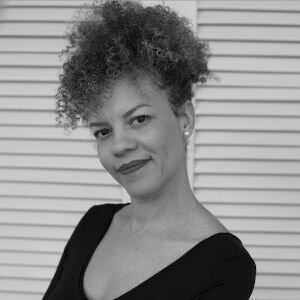Introducing: Cecília Olliveira
by Chris McGivern & SF Team, 28 February 2021

https://flickr.com/photos/jmeekphotography/11569935466/

Introducing: Cecília Oliveira
Background: A Brazilian investigative journalist, researcher and activist.
Idea: Solve the persistent problem of armed violence with Fogo Cruzado, a community-driven open data platform that saves lives and creates accountability.
The Problem
Gun crime plagues Brazilian society. At least 40,000 people lose their lives from gun violence each year. Much of this brutality clusters around specific areas, where drug trafficking rivals, hawkish police, and masked militias wage war and trap innocent citizens in a metaphorical and literal crossfire. Many shootings occur without any official acknowledgement or news report.
It’s clear that the bloodshed must stop. The argument lies around how it might happen. Hardline penal populism and a War on Drugs narrative currently exploits citizen fears and shapes popular opinion, despite compelling evidence that fighting violence with violence only leads to more drugs, crime and deaths. But new thinking is beginning to emerge, particularly from communities affected by these policies. At a grassroots level, Brazilian society has an appetite for alternative strategies, but hasn’t been able to coalesce behind any viable options.
The Idea
Cecília Olliveira is helping stimulate a growing public desire for new solutions to the violence with an open data platform called Fogo Cruzado. It collects and cross-checks reports of incidents by journalists, police and citizens, and maps the results to build an accurate, real-time picture and historical record of when shootings occur and where citizens should avoid. Fogo Cruzado is already saving lives daily: over a quarter of a million people from Rio de Janeiro and Recife use and contribute to the app.
Community safety is an immediate concern, but Cecília also sees an opportunity to unlock real social change. During her fellowship, she will seed the platform in new cities and states and use open data to bring a highly-charged, politically divided public together over its most fundamental problem. By arming citizens with tools and data, Cecília is disarming the powerful actors that perpetuate the destructive status quo. She is creating a persuasive case for a shift away from failed hardline policies and towards sensible strategies with proven track records.
“People that live here are affected by gun violence but have no say,” explains Cecília. “Political decisions are imposed on them - on us - so I want to amplify the voices of people that actually live inside this issue. With accurate data, we can unite people to get behind the same cause, build new policies and change the current reality.
“People shouldn’t suffer because they are waiting for access to information, and something like Fogo Cruzado should have existed 20 years ago. Open technology, open data, and our shareable methodology means we can move faster than academia and institutions, and we can work together to solve this urgent and pervasive problem.”
The Fellow
Cecília Olliveira: “This fellowship is an opportunity to test and expand into new cities and other Latin America and Caribbean countries that struggle with gun violence. I’m also excited to see other uses of our application and methodology: we have created them free and openly so others can replicate our success in different fields.
“It’s hard to take an idea from your head and make it happen. Nobody has made something like this before. We need to experiment because we can’t apply the same model everywhere: every place has different problems and needs tailored solutions. Many institutions do not understand or believe in something like this because they like to work with existing ideas with long track records. The Shuttleworth Foundation is giving me room to experiment; it’s completely different from anything else out there.”
The Foundation
As someone with deep ties in communities affected by gun violence, Cecília is a trusted leader and uniquely placed to make this idea work. It is already impactful: Fogo Cruzado data was fundamental in achieving a Supreme Court ruling that reduced police shootings in Rio by 70%. That this free, accessible, real-time information is saving lives is something to celebrate, but what makes the model exceptional is its ripple effect.
Policy is changing because everyday people are becoming activists. Accurate, open data is forcing a change of conversation in journalism, academia, and government. Along with Cecília’s experience, drive, and deep network of connections, many other practical, cultural and technological factors help make this idea work. But can the success of this model replicate in different regions of Brazil and beyond? This is the critical question Cecília will seek to answer during her fellowship, and we look forward to supporting her as she tests her ideas and enables widespread behaviour change.